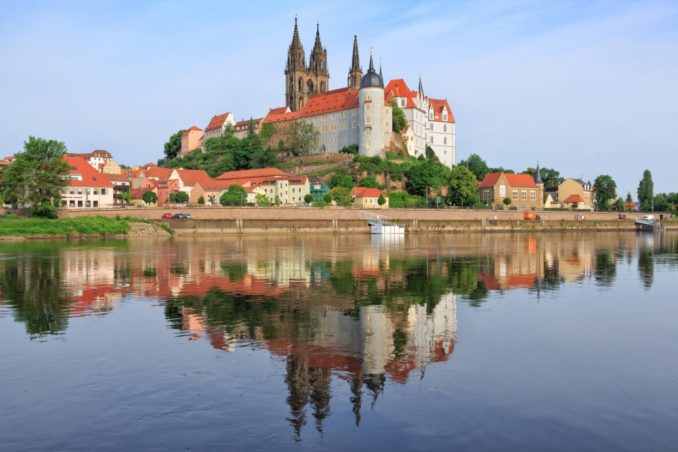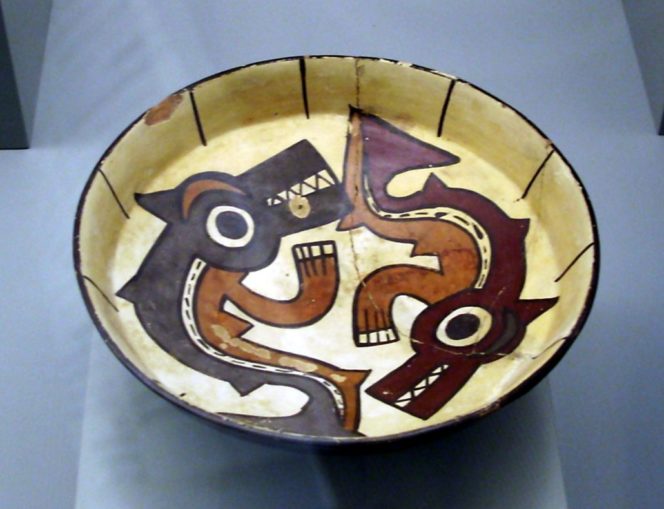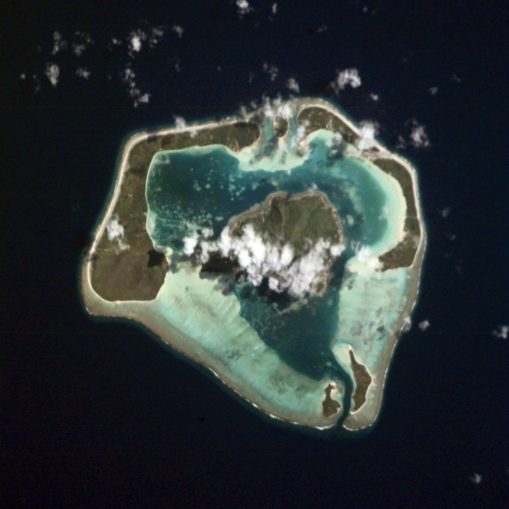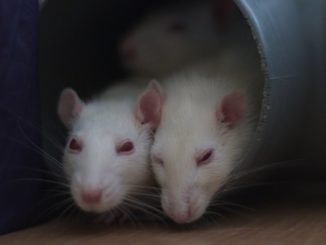
Avda [CC BY-SA 3.0], via Wikimedia Commons
So, while a picturesque landscape of rivers, hills and castles slid past the windows of the dining car, and as we had introduced ourselves already, we got talking. After some polite and hopefully witty remarks about this, that and the other, our conversation homed in on the not altogether likely topic of language. Now, language happens to be something most people think of as akin to the air we breath, the water we drink and the currents we use for our electronic devices. Language is simply taken for granted. But as it happens, it is not. For during the about 5.4 billion years of Earth’s existence, intelligible and at times intelligent utterances of a species were rather the exception, not the rule. And I don’t only refer to the chimpanzees, dolphins, ants and bees which – as David Attenborough and Walt Disney would have us mere humans believe – are so eagerly communicating with each other that it beggars believe they haven’t yet invented the telephone, or at least the telegraph.
Be that as it may. Even within the realm of more complex linguistic intraspecies intercourse, the idioms existing today are yet more of an exception than the rule, Ursula and I agreed on. That many more languages were already dead than alive stood to reason, I hastened to add while she downed the rest of her drink, a rather large gin and tonic. After ordering a second one and nibbling on a few nuts that looked as if they had been served a few times already, Ursula started talking about her current project, the Encyclopaedia of Lost Languages. This, I told her, sounded rather intriguing to which she agreed emphatically. Well it was her enterprise after all and – as far as the education ministry and her employer, the University of Jena were concerned – her sole reason for being now anyway.
Lost languages, I said, were a rather interesting field of study. But considering them being lost, wouldn’t their study have to rely to a significant amount on data extrapolation, if not conjecture? I asked as politely as possible. This, Ursula exclaimed, was not too great a worry as it had already become the norm for many academic fields to do just that, to base their latest findings to a large extent – if not entirely – on modelling techniques that were designed with a specific result in mind. After a short but meaningful pause, while we both had a glimpse at the weather along the track, we agreed that it was rather astounding what computers could do these days if you were out to make a buck or two. But no, Ursula said, relying on modelled data was not a hindrance in her field as she could always claim her methods were not too dissimilar from those used by climate scientists.
To give me more of an idea of her methods, Ursula started providing me with a first example. The steppe people of Ürgtar were, as the scientific consensus would have it, a group of semi-literate nomads living between the rivers Ob and Yenisei circa 2,000 years BC. They had a rather rudimentary, but highly adaptive language well suited to the harsh climates of central Siberia. It enabled them to hunt, gather and pass on their acquired knowledge to the following generation, at least to a useful extent. Studying the Ürgtar language was particularly suited to novices to linguistics as it was closely related to Erzya, Mkosha, Udmurt and Komi, four other Uralic languages still spoken today. Which were, as of course I would realise, quite closely related to Hungarian, Finnish and Estonian, and officially recognised in various regions of Russia.
The interesting thing about the Ürgtar, Ursula elaborated further, was that their sudden disappearance from the scene, apparently after making some innovative changes to their language. She was still a bit unsure about how exactly this came about, Ursula ventured to add, but the science was quite settled that somewhere around 1,850 BC, the Ürgtar chief’s wife died when her yurt collapsed or was set on fire by a warring faction of her tribe. The linguistic record on the ground was a bit sketchy, Ursula volunteered, as “khuak drûle qumishlàp” could either mean “burned to the ground” or “went to the ground”, while “chuap humlé” could either mean “by fire” or “by the enemy” in their idiom of the day. But, and this was apparently the important bit, shortly after whatever had happened, the Ürgtar started dropping the dual; a case to indicate things that occur in natural pairs such as eyes, ears, legs and so on. Now this was of course pure conjecture on her part, Ursula admitted freely, but perhaps the Ürgtar dropped the dual in order to not offend their chief, who had by some private or public misfortune, recently become a widower.
The consequences of this seemingly insignificant grammatical change were that now, the Ürgtar would not hunt animals in pairs any longer, but only single animals, as they lacked the linguistic resources to indicate that there was a second rabbit, fox or rat to go after. This obviously led to starvation and a gradual diminishing of the tribe’s size over the next two or three generations. At a time when people could realistically expect to be dead by the time they’d reached their mid-40s, this meant that the Ürgtar as a people were extinct within the next 50 years, the remainder of their tribe integrated – or rather assimilated – into the surrounding Khanty, Selkup and Komi-Zyrian. The Ürgtar’s historic record survived mainly on whale skin and fishbone in a provincial museum near Krasnoyarsk, which Ursula said she visited yearly, just so that staff remembered how she looked.

Simon Burchell [CC BY-SA 3.0], via Wikimedia Commons
She could go on about the M’Batú of the central Congo basin, Ursula said. Also exceedingly polite people who – after making changes to the way they employed their personal pronouns – found it impossible to strike up a conversation with the opposite sex before having established its gender first, with rather obvious effects to their birth rate. But shortly before I had to get off at Chemnitz, Ursula told me the story of the Kalualé, apparently a highly imaginative, yet utterly peaceful South Sea people with a language best suited to describing the surface of the sea. Their everyday vocabulary consisted of roughly 5,000 terms which were all – to a lesser or larger extent – derived from natural phenomena concerning the ocean. When they wanted to say “I was mad” they would say “ypaley ogatei” – literally: I felt like a big wave. (Kalualé was a wildly agglutinating language, Ursula mentioned as an aside).

NASA [Public domain], via Wikimedia Commons
We fell silent while the train called at Chemnitz, pondering the fate of these ancient people. After a few moments, Ursula started nibbling on her salted peanuts again. Would we face a similar fate, I inquired, in an effort to keep the conversation going? The jury was still out on that, Ursula said, smiling sublimely.
© Guardian Council 2019
The Goodnight Vienna Audio file



